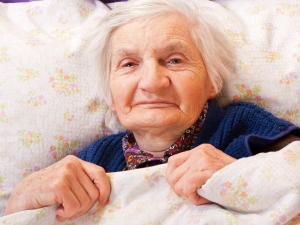Dementia and Human Rights – Part 7
So having started to look at the UN convention of the Rights of Persons with Disabilities, I’m going to look at the next few obligations.
Article 8 is about raising awareness, to promote positive perceptions of people with disabilities and greater social awareness. This is what the social movement Dementia Friends is all about, raising awareness and having a positive perception of people living with dementia both for those living with it either as a carer or as someone diagnosed and for greater society.
Article 9 is about accessibility, this is about both facilities and services and in particular those that are offered by the State. It breaks that down further to say that private entities should offer facilities for access if they are open to the public, that there should be training provided, that signage should be in Braille should be used in buildings open to the public and in easy to read and understand forms. That live assistance and intermediaries should be provided to facilitate access to buildings and facilities open to the public. And that States should promote other forms of appropriate assistance to access information.
Article 10 is the Right to Life and the Convention considers this an inherent Right of everyone, including people with disabilities and that all people should be treated on an equal basis. Article 11 in some ways is an extension of Article 10, in that it relates to situations of risk and humanitarian emergencies. This is a separate Article, but so it is not meant to be considered only as an extension of the Right to Life. It does recognise that people with disabilities are often even more at risk in situations of humanitarian emergencies and that States should therefore ensure that there is protection for these people “including in situations of armed conflict, humanitarian emergencies and the occurrence of natural disasters.”
Article 12 is the Equal recognition before the law. This is one that I have read a comment on by the Committee on the Rights of Persons with Disabilities, which was very interesting, so I will come back to this one. It is this Article that there is discussion that it may conflict with the Mental Capacity Act 2005.
Article 13 is Access to Justice, which is intending to give them a role as a direct or indirect participant in the justice system, including as a witness in legal proceedings and at all stages of proceedings. It can be easy to dismiss the testimony of someone with a disability because of an underlying prejudice, but why should they have little weight given to their testimony? They are still people!
Article 14 is the Right to Liberty and Security of Person, people should not be deprived of their liberty. This happens a lot to people with a disability, they are more likely to be in prison, which is a lawful detention, but it should be recognised that as a group they are not treated equally to the rest of the population. The cases of this that I see are that people are admitted into residential accommodation when they have a dementia and they are considered at risk. The professionals taking care of them are unhappy with the risk, so admit them into care, sometimes just for respite, except they never leave. People with dementia or any other disability is allowed to take risks, getting in my car each day is a risk, but one I manage and am allowed to take. So if I’m allowed to take risks, why aren’t people with dementia and other disabilities, why must they be cosseted, just so that the healthcare professionals won’t be criticised? Surely that is an abuse of their human rights every bit as much as neglect is?






Leave A Comment